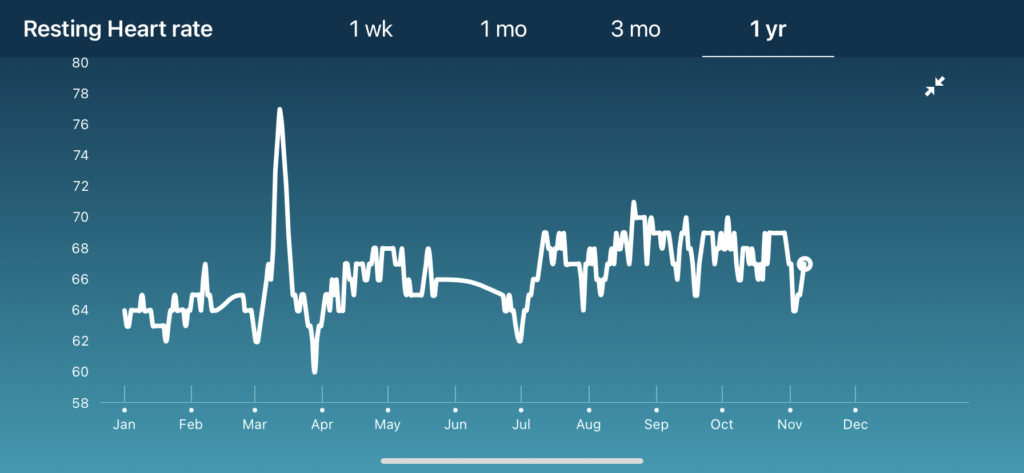I had a bad few days recently. But first, since I’m not qualified to have opinions on why my days were so bad, here are a few weasel words.
Caveat emptor: my musings may not be complete let alone correct.
The full story starts with a fear of failure. It starts with the worry that my attempts to manage my cholesterol with diet were failing. It ended with a realisation that I wasn’t able to finish any of my daily journals.

Kylemore Abbey as revisited in December 2004 with a former student.
I’ve since read a report on dietary cholesterol that suggested no one really knows what’s good and bad. Thank you to the person that sent this link. Now you, dear reader, can read that report for yourself. Well, since I don’t want you to go immediately, I’ll put the link at the bottom of this journal.
Here’s a quote from another article: ‘The current literature does not support the notion that dietary cholesterol increases the risk of heart disease in a healthy individuals. However, there is an ample evidence that saturated fatty acids and trans-fats increase cardiovascular disease risk. The fact that dietary cholesterol is common in foods that are high in saturated fatty acids might have contributed to the hypothesis that dietary cholesterol is atherogenic.’
Anything that is atherogenic, tending to promote the formation of fatty deposits in the arteries, is probably bad for you. A colleague once read that plaque from your teeth may be atherogenic so he could often be found in the office bathroom brushing his teeth. Often was thrice daily: on arrival at the office, after lunch and just before he went home. A tad obsessive, I’ll bet he did it on waking and just before bedtime too.
Here’s a recent quote on that topic: ‘… there may not be a direct connection. Many people with heart disease have healthy gums, and not everyone with gum disease develops heart problems. Shared risk factors, such as smoking or an unhealthy diet, may explain the association. Still there’s a growing suspicion that gum disease may be an independent risk factor for heart disease.’
Like you, I’d like to manage my cholesterol. It’s simple common sense since ‘cholesterol is a structural component of cell membranes … plays an integral role in membrane fluidity … and is also important in the synthesis of lipid rafts which are needed for protein sorting, cellular signaling, and apoptosis.’ In other words, we need cholesterol. You can’t eliminate it.
And I’ll have to manage it with diet. That’s what I know for sure after my recent bout of bad days.
Long story short? Stick me on a treadmill and you’ll see that I have a heart valve that rattles at high heart rates. It’s a degenerative condition that my cardiologist says can be managed rather than repaired and so I was put on statins.
I ended up on two different statins for different two periods last year because I had some adverse reactions. The second variant prescribed by my excellent GP was more tolerable than the first but both gave me joint pain in my hands and muscle pains in my legs. I had some sleep issues, couldn’t concentrate, lacked energy and as if that wasn’t enough, anxieties appeared from nowhere. Ultimately, I took myself off them because I felt suppressed if not downright depressed. However, blood tests done after eight weeks showed that the second statin had dropped my LDL cholesterol from an elevated category of concern to a level suited to my age and prolonged heart valve management.
So I went instantly vegetarian and after two blood tests, I was confirmed as managing my LDL cholesterol with diet. Then came the pandemic.
And now, after six months of lockdown and a reduced average of just 7,000 steps per day, my resting heart rate has risen, a little bit. This slight increase is the opposite to the marked downward trend in my resting heart rate in the months after I went vegetarian, a period when I was walking twice as much on average each day as I am today. Take a look at the slope of an imaginary line that joins the first and last reading on the embedded graph. It’s not a huge concern but it caused me to try another statin. Just in case.

Some might argue that using graphs from FitBits is dangerously misleading. Others will say that I overreacted. All I know is that this pandemic has given me time to think and perhaps on this issue, I was trying to fix something that wasn’t broken.
A nurse had told me that her husband was managing his cholesterol with natural remedies. The main agent was Red Yeast Rice, commonly used in making Peking duck. It’s generally marketed as a dietary supplement that lowers levels of cholesterol and related lipids. It’s widely available and the nurse claimed that her husband was doing well on it.
So I read up on Red Rice Yeast and learned it was rich in monacolin K, which is chemically identical to the active ingredient in the cholesterol-lowering drug lovastatin.
So I had a go after I bought a bottle of capsules in a health food shop. And two days into my self-medicating experiment, I had joint pain in my hands, muscle pains in my legs and I couldn’t concentrate enough to finish my daily journals. And as if that wasn’t enough, anxieties appeared from nowhere.
I stopped taking the supplements and it took about three or four days for most of the symptoms to fade. It took a lot longer for the feeling of lassitude to dissipate and then after that, my concentration returned. I had continued to journal my daily ideas, but only in note form. I had been unable to draw them together into something worth sharing. Whether they are ever worth sharing is moot.
And yes, I have the result from the most recent blood test, the one that caused me to buy Red Yeast Rice, and of course my GP congratulated me on continuing to manage maintain a satisfactory LDL level with diet. I had no need to try the ‘natural statin’.
Even though I have paid a fortune to get cardiovascular health advice, I blithely engaged in something I didn’t and don’t fully understand. Perhaps I had too much time on my hands. Perhaps there are still too many uncertainties in cardiovascular science. Perhaps there’s not enough regulation in dietary supplements.
Perhaps there’s another potential fallout from the pandemic. Our self sufficiency in infection avoidance maybe giving us a false sense of confidence in knowing what’s good for us. Perhaps we need to be careful to not let confusion over Covid policies undermine our trust in other fields of medicine.
References:
– You can read why I don’t like statins in Vegetarianism that I posted several months ago.
– Dietary Cholesterol and Cardiovascular Risk: A Science Advisory From the American Heart Association (2019)
– Gum disease and heart disease: The common thread (2018)
– Dietary Cholesterol and the Lack of Evidence in Cardiovascular Disease (2018)

Leave a Reply